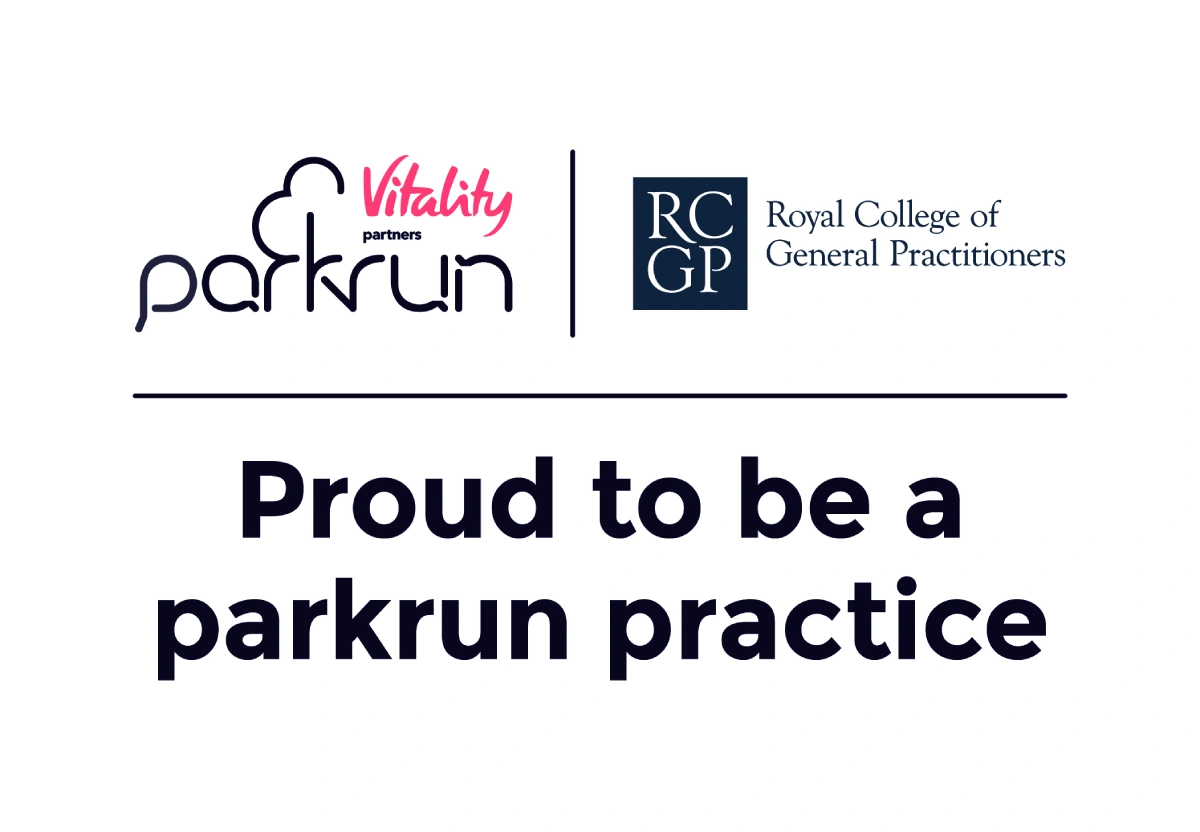We use cookies to help provide you with the best possible online experience.
By using this site, you agree that we may store and access cookies on your device. Cookie policy.
Cookie settings.
Functional Cookies
Functional Cookies are enabled by default at all times so that we can save your preferences for cookie settings and ensure site works and delivers best experience.
3rd Party Cookies
This website uses Google Analytics to collect anonymous information such as the number of visitors to the site, and the most popular pages.
Keeping this cookie enabled helps us to improve our website.
What are VGCs and why is the NHS supporting their roll out in primary care?
Group consultations are one to one medical consultations with a GP and/or specialist nurse delivered within a supportive group with a facilitator, either virtually or face to face. The NHS is supporting this model as a way for GP practices to bring together individuals for support with long term conditions helping them to better manage their own health and share their experiences and learning. This is a new way for you to join people with similar health issues and consult with your GP, nurse or healthcare team for a longer period of time allowing for more in depth discussion and shared decision making.
The evidence is that following a group consultation approach patients feel more able to cope and keep themselves healthy through improved access and spending longer with their healthcare team.
All group members sign or verbally agree to a confidentiality and group clinic agreement. You can ask for a private discussion with the clinician if needed.
We hope you will join us in this new way of working.
We look forward to working with you!
When do the clinics take place and how can I book?
Our menopause group consultations take place on Wednesday afternoons and Thursday evenings.
If you are not already booked in for a VGC but would like to attend one of our clinics, please call the surgery and speak to one of our reception teams.
I have been booked in for a clinic, is there anything I need to do before I attend?
If you are booked in for a VGC, you must complete the form below before you attend.
Registration, questionnaire group clinic agreement form
Details changed after registration?
If after you fill in the registration form your information changes, you will need to let us know before attending your clinic.
Where can I get further information?
If you have any further questions, you can read our frequently asked questions (FAQs) below.
If you cannot find the answer you are looking for, you can also contact the practice either using the contact us form above or on the telephone and ask our clinic co-ordinators to explain more about the clinics.
Frequently Asked Questions
What are video group clinics?
Video group clinics are a way for you to spend more time with your doctor, nurse or GP, get your one to one review and get answers to your questions alongside others living with similar health issues. You may also get advice from specialist nurses and doctors, pharmacists, physiotherapists, dieticians, social prescribing link workers and health coaches in this way.
You spend longer with the clinician than you would in a one to one appointment. People find having more time for questions and the chance to learn from other people’s experiences and share their own mean they learn more, cope better and often succeed in keeping themselves well.
Do I consent to participate?
Yes, there is a consent process in place and this helps you and others stay safe and preserves the whole group’s confidentiality.
What happens at a video group clinic (VGC)?
t your video group clinic you get the clinical review and support you need. You get answers to your specific questions and there is group discussion about health issues too.
Your VGC lasts between 60 and 90 minutes. There are usually up to 10 people in a group. Once you’ve clicked the link and joined, a member of the clinic team who is running the video group clinic will greet you. The facilitator’s job is to keep the group together and make sure the clinic stays on track.
They will ask you to confirm your identity and check you are happy to take part. Then they will start the session by reminding everyone in the group to keep information confidential and to follow some simple group rules or understandings that help you to get the most out of the clinic and your time with your clinician.
Each member of the group introduces themselves. There is time to review and understand your condition and your main concerns about it. Then you come up with questions for your clinician who joins the group after about 15 minutes. When the clinician joins, they discuss and answer common questions with the group. Each individual will have the opportunity to speak to the doctor in turn while the rest of the group benefit from hearing the consultation. The facilitator wraps up after 60-90 minutes and you get the chance to reflect on what you have learnt and what you want to do next to keep well.
What's the benefit of a video group clinic?
VGCs are a very engaging remote consultation model for people with a whole range of health care issues. They are not just a response to COVID-19. They are a real and better alternative for many people.
VGCs are up and running all over the UK. They have proved popular. People say that they enjoy hearing the experiences and getting advice from other people in a similar situation. They also like having longer with the clinician to talk about their concerns and for questions. They enjoy sharing what has worked for them with others and hearing about others’ successes. They feel less isolated and alone, managing their health issues. They also find VGCs very convenient. They don’t need to worry about parking and travel if they have mobility issues or live a long way from the hospital or clinic. They also find it easier to join if they work or have caring responsibilities. People who attend VGCs see their health improving and need to go to hospital less.
Can I still have a one to one telephone or face to face consultation with my doctor or nurse?
If there are complex issues that cannot be addressed during the group, the clinician will arrange a follow up appointment with you. Or they may need to get back to you with answers to specific questions that couldn’t be answered during the group though this is unusual.
What happens if I am late joining?
Our policy is that everyone must be signed in no later than 5 minutes after the agreed start time. This is because it is important that everyone is checked in, consents and signs up to the group understandings at the start. It is very disruptive for the group when people join late. If you are late, get in touch and we will book you into another video group clinic or remote consultation. Contact the surgery by calling 01227 284300 to re-book.
How do I join my video group clinic
We checked that you have everything you need to join before we gave you this appointment. This includes: an email account or mobile phone with internet access. The clinic has sent you a meeting link in an email. You click on this link to access the video clinic platform. Then the video group clinic begins.
If you no longer have access to the internet or a device, please contact your clinic co-ordinator and they will find a different way for you to participate.
This is how we recommend you join:
- Before the group, read the group clinic agreement In the VGC, you will be asked to confirm that you are happy to participate on this basis, and that you agree to keep all information that group members share confidential
- Check your privacy settings. If you already use or have an account with Microsoft Teams make sure you ‘Log Out’ before you join the VGC
- Join from a comfortable space. The VGC lasts 60-90 minutes. Make sure you are comfortable and that you have enough battery power to last this time. Ideally plug your device in to the power socket before you join the VGC
- Be on your own unless you have asked someone to attend with you. We understand you may be joining from home or work. If there is anyone else in the room and they can hear, they either need to leave or read the group clinic agreement and consent
- Join 10 minutes early. Click on the group clinic link 10 minutes before the start time. This provides time for us to help with your technology if you need it; especially the first time you are joining.
- Use your first name and the initial of your surname when you sign in, e.g. “Bob T”. This preserves your privacy
Is my personal information is stored on the computer after a video group clinic?
The type of information stored on remote consultation or video conferencing platforms differs from system to system. Information is stored before, during and after sessions and normally controlled through the privacy settings of the particular platform. Most platforms provide information on privacy settings, the information they store and how to maintain confidentiality. The general rule is to ‘log out’ of any accounts you have and enter your VGC sessions as a ‘Guest’. This helps you to avoid sharing personal information like your full name and email.
Is there anything else I need to know about privacy?
It is your responsibility to ensure that your computer has adequate anti-spyware and anti-virus protection. If you are participating in a VGC on a mobile phone, please understand that the session is only as secure as any other phone call on your mobile network.
How do I know a video group clinic is for me?
You won’t know until you give it a go! People tell us they really enjoy the experience. VGCs might not suit everyone. If you are feeling anxious beforehand, let the facilitator know. It is also OK to join a group and just listen and see if it is for you. You can even join in and decide to leave if it isn’t right for you. At any point you can leave a group, you can do.
What happens if I don’t want to say anything in a video group clinic?
Do let your facilitator know if you are feeling worried about being in a group. It is OK to join a group to just listen. You will still learn a lot and many people who do this and end up joining in once they feel comfortable.
What happens if I change my mind when I’m in a video group clinic?
If you feel the VGC isn’t working for you, let the facilitator know. You can leave at any time. The team asks for feedback at the end of every video group clinic so let your facilitator know if you think things could be improved.
Can my partner, friend or carer join me in my video group clinic?
Yes, with your agreement. It is often very useful for family members, carers or friends who support you to join. The beauty with VGC is they can join from their home or workplace and you can join from yours. If your relative lives at a different address or even in a different town or abroad, they can still join in to support you. They need to consent to take part and agree to respect confidentiality, and confirm their identity just like other participants. Ideally you should just invite one person to join you; otherwise groups can get too large. Please let the facilitator know ahead of the time so we can add their name to the register.
Can I record my video group clinic session?
No. To ensure all information shared in the session is kept confidential and your privacy is fully respected, you will be asked to sign up to the ‘VGC Patient Agreement’. This means you must not record, share or post any aspect of the session. It’s in everyone’s interest to respect this.
Are under 18s allowed to join or be in the background of a video group clinic and do they need to consent?
Are under 18s allowed to join or be in the background of a video group clinic and do they need to consent?
You must alert the facilitator to people of any age in the background and within earshot of the VGC. Once alerted, the facilitator will ask anyone who can overhear to consent. Clinicians make the overall decision on the appropriateness of the information being discussed with young people present and may ask that the young person leaves.
Can I share my video group clinic link with someone else who wants to join in?
No. If you want a relative or carer that you wish to join you in the group clinic, please let the clinic team know in advance that your relative or carer will be joining and they will register you relative or carer and send them the link.
How is my health information kept confidential during a group?
We assure this in three ways. First, before the group, all participants are sent an agreement to not to share any information discussed within the group. Unlike the confidentiality regulations surrounding a doctor’s obligation to keep all information confidential, this is not enforceable by law. However, as all participants will be sharing personal information, it is in everyone’s interests to respect this.
Second, when you join the session, the facilitator asks you to consent to share limited and relevant information about your condition with the group. This information will be shared with the group in the form of a Discussion Board. You consent verbally and you might confirm this in the “CHAT”.
Third, the clinic team makes a record that you have consented and note this in your computer record.
Clinic teams get training and support in preserving confidentiality and safe information sharing. The video platforms being used to host video group clinics also meet NHS cyber security quality requirements.
Will there be any follow up after the video group clinic?
If a prescription has been agreed this will be sent electronically by the clinician after the clinic, they may also send you some resources if these have been discussed during the clinic. If you have any private concerns or the clinician feels you needs some further one to one time or follow up, then you can be booked in for a follow-up one to one appointment as usual. We expect you will have a positive experience and you can book into further VGCs when needed.
Can patients get together and form their own groups after a video group clinic?
Yes. Some people find that they get on really well, form friendships and want to carry on meeting to support each other after they meet at VGCs. Getting involved if this happens is your choice. Being part of a support group helps some people stick to their goals and keep motivated to make lifestyle changes that may help with you manage your condition and recovery. Your clinician can refer you to support groups that already exist. Ask about this if you are interested.
Any other questions?
If you have other questions or if you have been to a VGC and want to add to this list of questions to help other patients, please get in touch with your group clinic team.



